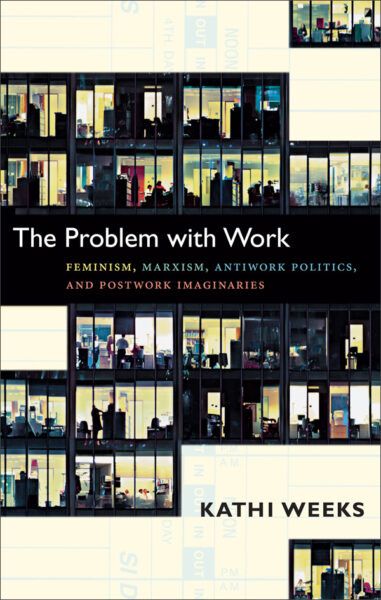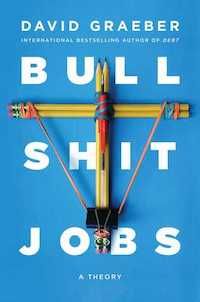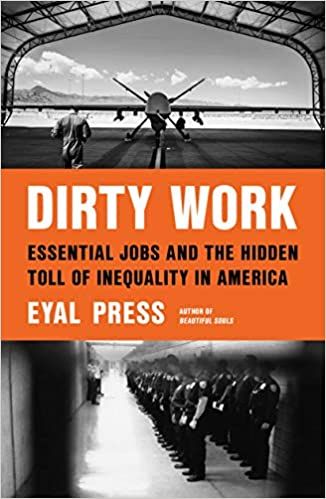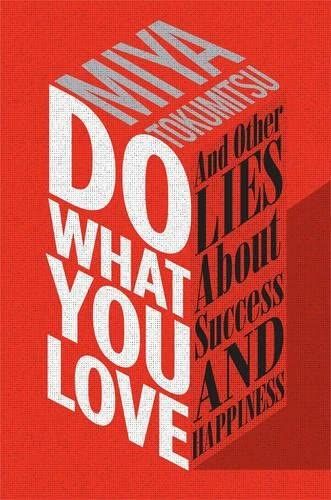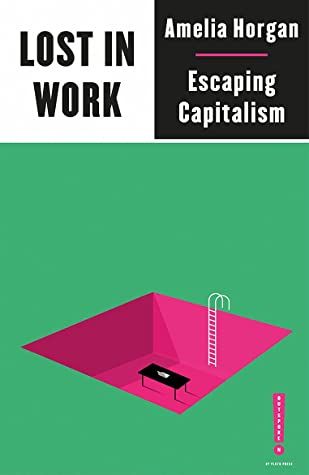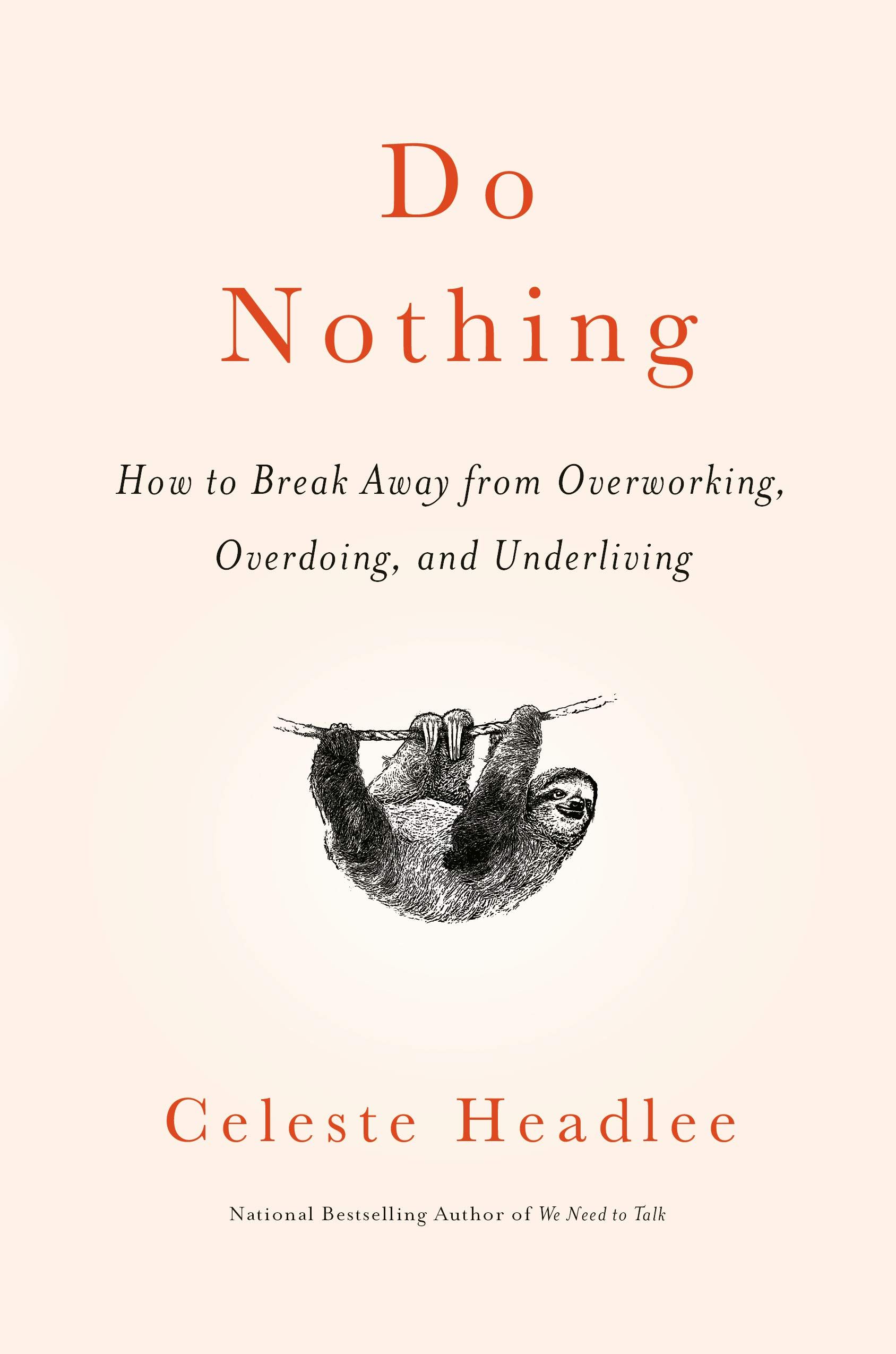I worked because I believed that working made me “good” and that not working would make me lazy and “bad.” I believed that working hard led to rewards — higher pay, happiness, a more established feeling of accomplishment.
In the years that followed, I worked a whirlwind of different jobs. From server at several Steak ‘n Shake restaurants to comment screener for an online obituary site to third shift inventory specialist to assistant of four attorneys in a commercial title insurance company. Since 2007 I’ve worked exclusively as a copy/writer.
If hard work really led to financial rewards, the hardest of those jobs would pay the most. Of course, we all know the opposite is true — I make much more sitting around writing about books for a living than I did as a server when I went home with bleeding feet and calluses on my hands every night. I worked way harder counting thousands of screws on my knees at 3 in the morning at your local hardware store than I did sitting around screening obituary comments, yet my salary did not reflect this.
Then of course there are those that would respond to this by telling me that the jobs that don’t pay “aren’t supposed to” and that they are meant for teenagers, as if being a teenager means that fair wages aren’t a reasonable, bare minimum expectation of literally any person who works any job. Get outta here.
For many years I fought for higher wages and benefits for workers. I wanted the entire country to have labor laws that went beyond the best-in-the-country labor laws of California. I have been a proud member of the National Writers Union for years.
But eventually, I came to realize that working to increase wages and benefits is just a bandaid. I no longer want to fight for a larger piece of the same shit pie — I want to abolish the damn shit pie in the first place. Let us eat non-shit cake!
Trust me when I, your neighborhood Socialist, tells you that I have heard all the arguments against these ideas. “But who will take out the trash???” “Everyone can’t just STOP working!” you yell at me. If you are interested in understanding the answers to those oft-asked questions (and others) here’s a syllabus of books that’ll get you those answers — written by people much smarter and more qualified to lecture you than I am.
We live in economic times in which many people don’t like their jobs, don’t feel secure in their jobs, and/or don’t feel that their jobs are worth doing. We live in a world in which wealth for the 1% is ever-increasing while the middle and lower classes are leaking wealth through no fault of our own.
The author, Kathi Weeks, is a professor of Gender, Sexuality, and Feminist Studies at Duke University and this will not surprise you when you are reading this book. This is a book clearly written by an academic and it covers a wide range of antiwork arguments from different ideologies. If you really want to get into it with a textbook-style tome, this is it.
While Graeber doesn’t name specific jobs as “bullshit jobs,” he does give a definition of such. Essentially, if your job disappeared tomorrow, would the world notice? If you drive a city bus for a living, it is likely people would notice — this is not a bullshit job.
Examples of potentially bullshit jobs include HR consultants, communication coordinators, telemarketing researchers, and corporate lawyers.
Graeber suggests that answer is a shift in values in which caring, creative work should be the focus of the workplace — not corporate shilling.
What is clear is that some jobs are more than just bullshit jobs. As Press discusses, some jobs come with significant emotional, psychological, and physical hazards. Some jobs bring with them “moral injury” in which workers are forced to choose between no job and working on morally questionable (at best) jobs.
Worse, these jobs a) often fall to women, people of color, and undocumented workers and b) often pay no more than minimum wage. If Capitalism is supposed to reward those who work the hardest, then why aren’t those who do the dirtiest jobs rewarded with the biggest paychecks?
Tokumitsu takes this Confucius quote head-on and brings light to the fact that today’s workers are being asked to do more and more and are getting paid less and less. At the same time that “successful” and immorally wealthy people like Oprah and Steve Jobs told workers to “do what you love,” the billionaires in charge had decided to pay workers less and less.
Not only are workers now expected to make enough money to pay rent/their mortgage in a time in which the cost of property is exploding, pay their student loans totaling more than $1.6 trillion, and continue to somehow afford ever-increasingly expensive food, you’re also supposed to LOVE the job you’re doing — all while being paid less. Seems reasonable!
In Do What You Love, Tokumitsu articulates and examines the sacrifices people make for a chance at loveable, self-actualizing, and, of course, wealth-generating work and the conditions facilitated by this pursuit. This book continues the conversation sparked by the author’s earlier Slate article and provides a devastating look at the state of modern America’s labor and workforce.
Horgan looks for the answers to three main questions:
- What is work?2. How does work harm us?3. What can we do about it?
Spoiler alert: Her final answer is not “abandon work altogether,” but rather for workers to take control of the places in which they work.
Essentially, this is Marx for people who want a straightforward analysis without all the gobbledygook. Not that there’s anything wrong with gobbledygook — my own gobbledygook pays my mortgage — but sometimes you want a brilliant woman to make a grandiose man’s words make sense.
At first a scathing take-down of the idea that we need to be in “peak performance” at all times, Headlee gets into the nitty-gritty of not just why you shouldn’t do that but what to do instead; there are baths involved! Not the most antiwork of all the antiwork books, this tome does provide key analysis of the current work/life balance arguments. Is an end to work as we know it the answer? Read these antiwork books to become a smartypants who understands the arguments that boil down to an antiwork conclusion. And while you’re here — check out this excellent list of books about unions to learn how activists have worked to improve the shit pie.
